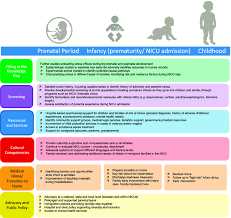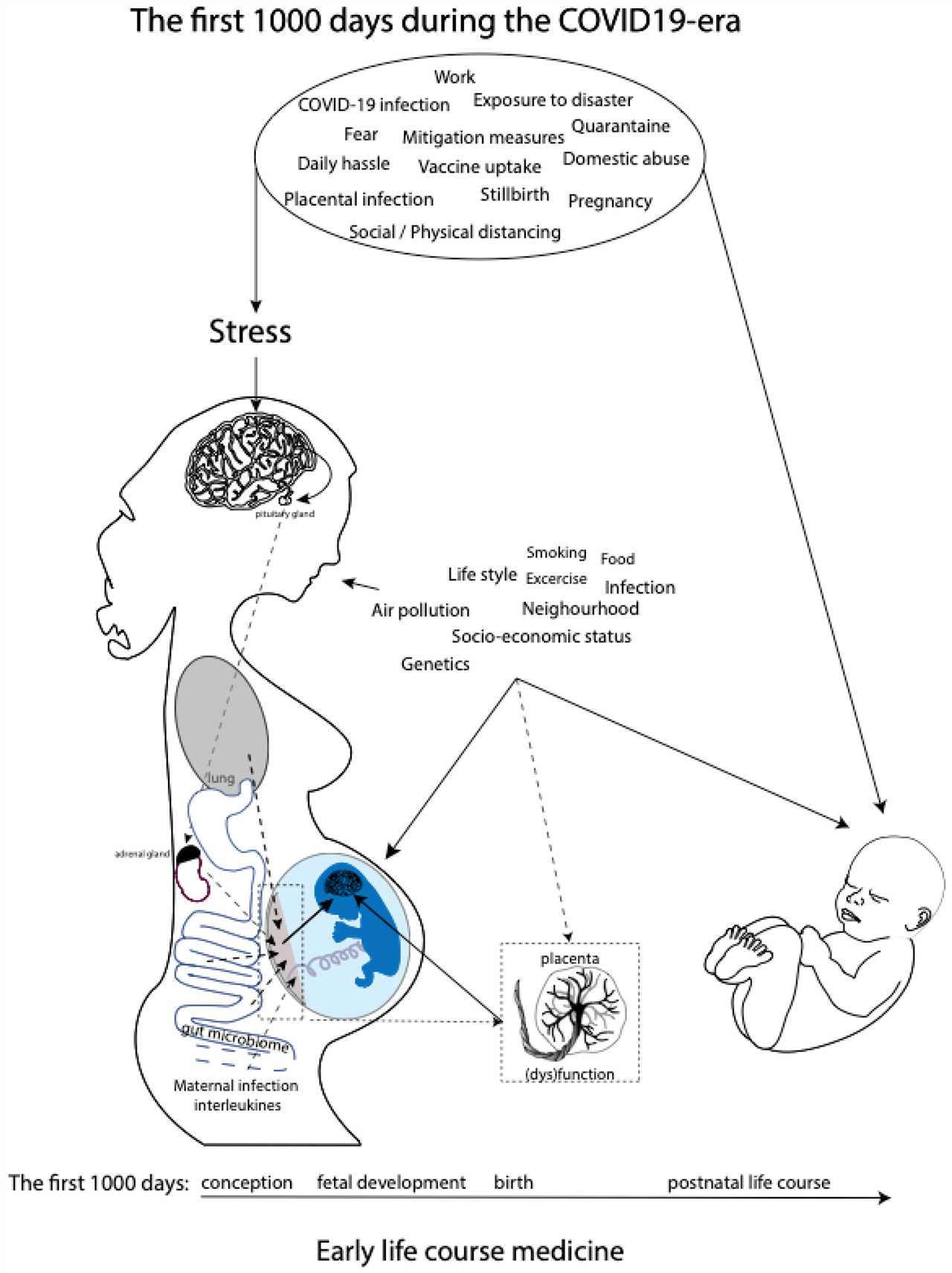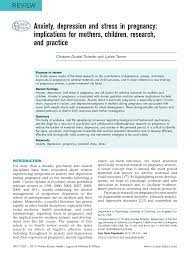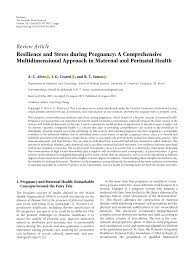
Pregnancy is a transformative and often challenging time in a woman’s life. Alongside the physical changes, hormonal fluctuations, and anticipation of motherhood, stress can be a common experience. The impact of stress during pregnancy is well-documented, with potential effects on both maternal and fetal health.
Fortunately, there are programs available that can help pregnant women build resilience and effectively manage stress. These programs aim to provide tools and strategies that empower women to cope with the demands of pregnancy and reduce the negative impact of stress on their well-being.
One such program is focused on enhancing stress resilience through mindfulness-based techniques. Mindfulness involves paying attention to the present moment without judgment, allowing individuals to become aware of their thoughts, emotions, and physical sensations. By practicing mindfulness, pregnant women can cultivate a sense of calm, reduce anxiety, and improve overall mental well-being.
Another effective program for stress resilience in pregnancy is cognitive-behavioral therapy (CBT). This approach helps women identify and challenge negative thought patterns, develop positive coping skills, and learn effective problem-solving strategies. By addressing the underlying causes of stress and providing practical tools, CBT can significantly reduce stress levels and improve emotional well-being during pregnancy.
Benefits of Stress Resilience Programs

Stress resilience programs during pregnancy can have numerous benefits for expectant mothers. These programs aim to help pregnant women develop the skills and strategies needed to effectively manage and cope with stress. By building resilience, pregnant women can better navigate the challenges and pressures that come with pregnancy.
One of the key benefits of stress resilience programs is the reduction in stress levels. Pregnancy can be a time of heightened emotions and anxiety, and stress resilience programs provide women with tools to manage these feelings. By learning how to identify and address stressors, pregnant women can experience a decrease in stress, leading to improved mental and emotional well-being.
In addition to reducing stress, stress resilience programs can also have a positive impact on physical health. High levels of stress during pregnancy have been linked to various adverse outcomes, including preterm birth and low birth weight. By participating in stress resilience programs, pregnant women can potentially reduce these risks and promote a healthier pregnancy.
Furthermore, stress resilience programs can enhance the overall pregnancy experience. Pregnancy can be a time of joy and excitement, but it can also be challenging. By developing resilience, expectant mothers can better handle the ups and downs of pregnancy, allowing them to fully embrace the journey and enjoy the process.
Overall, stress resilience programs during pregnancy offer expectant mothers the opportunity to build important skills and strategies to effectively manage stress. By reducing stress levels, improving physical health, and enhancing the pregnancy experience, these programs can have a positive impact on both the mother and the baby.
Improved Emotional Well-being

During pregnancy, women experience a wide range of emotions, including joy, excitement, and anticipation, as well as anxiety, stress, and mood swings. It is important to address these emotional challenges to promote overall well-being and resilience during this period.
Effective programs for stress resilience in pregnancy aim to improve emotional well-being by providing women with the necessary tools and strategies to manage their emotions. These programs often include components such as mindfulness exercises, cognitive-behavioral therapy, and social support.
Mindfulness exercises, such as meditation and deep breathing techniques, can help pregnant women develop a greater awareness of their emotions and reduce stress. By practicing mindfulness, women can learn to identify and accept their emotions without judgment, leading to improved emotional well-being and resilience.
Cognitive-behavioral therapy (CBT) is another important component of programs for stress resilience in pregnancy. CBT helps women identify and challenge negative thought patterns and beliefs that contribute to emotional distress. By replacing negative thoughts with more positive and realistic ones, women can improve their emotional well-being and develop resilience to stress.
In addition to mindfulness exercises and CBT, social support plays a crucial role in improving emotional well-being during pregnancy. Women who have a strong support system, whether it be from their partner, family, friends, or healthcare providers, are more likely to experience reduced stress levels and improved emotional well-being. Support can come in the form of emotional support, practical assistance, and information, all of which contribute to greater resilience in the face of stress.
In summary, effective programs for stress resilience in pregnancy focus on improving emotional well-being through mindfulness exercises, cognitive-behavioral therapy, and social support. By providing women with the necessary tools and strategies to manage their emotions, these programs help promote overall well-being and resilience during this transformative period.
Enhanced Maternal-Infant Bonding

During pregnancy, stress can have a negative impact on the relationship between a mother and her infant. Research has shown that high levels of stress during pregnancy can lead to difficulties in bonding and attachment between mothers and their infants. This can have long-term effects on the child’s emotional and social development.
Effective programs for stress resilience in pregnancy aim to enhance maternal-infant bonding by providing support and resources to expectant mothers. These programs often include interventions such as counseling, support groups, and educational materials.
By addressing the stressors that pregnant women face and providing them with tools to cope with stress, these programs help to create a more positive and nurturing environment for both the mother and her infant. They also promote healthy attachment and bonding, which can have lasting benefits for the child’s well-being.
Furthermore, enhanced maternal-infant bonding can also contribute to reducing the risk of postpartum depression and anxiety, as a strong bond between mother and infant can provide emotional support and a sense of connection during the challenging postpartum period.
In conclusion, programs for stress resilience in pregnancy play a crucial role in enhancing maternal-infant bonding. By addressing the impact of stress on the mother-infant relationship and providing support and resources, these programs help to create a nurturing environment for both mother and child, promoting healthy attachment and long-term well-being.
Reduced Risk of Postpartum Depression

Pregnancy is a time of significant physical, emotional, and hormonal changes, which can often lead to increased stress levels. High levels of stress during pregnancy have been linked to an increased risk of postpartum depression.
Fortunately, there are effective programs available that can help reduce stress and lower the risk of postpartum depression. These programs focus on providing expectant mothers with tools and strategies to manage stress, promote self-care, and build resilience.
One such program is mindfulness-based stress reduction (MBSR), which incorporates mindfulness meditation, gentle yoga, and body awareness techniques. Research has shown that participating in MBSR during pregnancy can significantly reduce stress levels and improve overall mental well-being.
Another effective program is cognitive-behavioral therapy (CBT), which helps individuals identify and change negative thought patterns and behaviors. CBT can be adapted for pregnancy and postpartum periods to target specific stressors and promote healthy coping mechanisms.
Additionally, social support programs that connect expectant mothers with peers and professionals can also be beneficial. These programs provide a safe space for sharing experiences, seeking advice, and receiving emotional support.
It is important for healthcare providers to recognize the impact of stress during pregnancy and offer appropriate interventions. By implementing effective stress resilience programs, we can help reduce the risk of postpartum depression and promote the well-being of both expectant mothers and their babies.
Types of Stress Resilience Programs

During pregnancy, it is important to implement effective programs that promote stress resilience. These programs can help pregnant women develop the tools and strategies needed to cope with stress and build resilience.
There are various types of stress resilience programs that have been found to be effective in supporting pregnant women. One type is mindfulness-based programs, which focus on training individuals to be fully present in the moment and non-judgmentally aware of their thoughts and emotions. This can help pregnant women manage stress and reduce anxiety.
Another type of program is cognitive-behavioral therapy (CBT), which aims to identify and change negative thought patterns and behaviors. CBT can help pregnant women develop healthier coping mechanisms and improve their overall well-being.
Some stress resilience programs also incorporate physical activity, such as yoga or exercise classes specifically designed for pregnant women. These activities can help reduce stress levels and promote relaxation.
Additionally, social support programs can be beneficial for pregnant women. These programs provide a supportive environment where women can share their experiences, receive emotional support, and learn from others who may be going through similar challenges.
It is important to note that not all stress resilience programs work for every individual. Each pregnant woman may have different needs and preferences, so it is essential to tailor the program to meet their specific needs.
Overall, stress resilience programs during pregnancy can be valuable in helping women build the necessary skills to cope with stress and promote overall well-being. By implementing these programs, pregnant women can enhance their resilience and improve their ability to navigate the challenges that may arise during pregnancy.

I am Patrina de Silva, a psychologist and mental health blogger in Sri Lanka. After obtaining psychology degrees from the University of Colombo and Monash University, I returned home to work as a counselor while also starting the popular blog “Pressy but Happy” to provide advice on psychological issues. Over the past decade, my empathetic articles have made my blog a leading mental health resource in the country. In addition to writing, I maintain a private therapy practice, frequently volunteer counseling time, and conduct seminars, driven by my passion for destigmatizing mental illness and educating the public on the mind-body connection. I strive to be an influential voice in my field through my compassionate approach.
